A Crieff author, public speaker and local radio DJ says he no longer wants to undergo surgery for penile cancer.
Dr Roger Cartwright has bravely spoken about his experiences with the rare condition that affects less than 100 people each year in Scotland.
Since the 73-year-old was diagnosed with cancer of the penis a decade ago he has had surgery 14 times to stop the onset of lesions and reduce bleeding.
Each operation takes a big toll and he is now prepared to have no more operations.
“It is not going to go,” Roger said.
“You can’t beat the big C – it always comes back to get you.”
He has chosen to open up about his condition to encourage others not to be embarrassed.
“Men tend to go ‘Eurgh’,” Roger said.
“I have never kept it a secret because other people may suffer and might not know they have it.
“People neglect these things and that is why I have never been afraid to talk about it.
“If it helps anybody who is going through cancer, and particularly difficult cancers, I will speak about it.
“I try to do anything I can for Cancer Research and for anyone going through it.”
From teaching to entertaining
Roger forged a teaching career in his native Manchester before taking on lecturing, managerial and administrative roles in the education sector across Kent, London and Oxfordshire.
In 2002 he embraced retirement and began working as a speaker on cruise ships regaling travellers with tales about maritime adventurers from his days as a sea cadet officer in Manchester.
The former Royal Naval reserve officer has also written various nautical articles and a series of books on business and management.
‘Making jokes is how you cope’
When Roger’s penile cancer became apparent in 2012 the condition was even rarer than now.
He was one of only two people in Scotland with the diagnosis.
Roger, by this time living in Crieff, was supposed to be speaking on a Coral Princess cruise from Singapore to Dover when he noticed a lesion on his penis.
It was initially thought he had Bowen’s disease, a very early form of skin cancer that is usually treatable.
He received plastic surgery at Ninewells but this failed to work so was referred to urologist Dr Roland Donat at Western General Hospital in Edinburgh.
“I was terrified of him but has turned out to be a really good friend and a great surgeon,” Roger said.
“We swapped jokes. He has a German sense of humour.
“I can make a number of jokes about it because that is the way you cope.”
‘Would I be prepared to be the guinea pig?’
That sense of humour has stood Roger in good stead for the intrusive ordeals that would follow.
“The normal cure is amputation,” he stated with deadpan delivery.
Would I be prepared to be the guinea pig, they asked?”
But something different was tried with Roger.
He underwent surgery in which his urethra was cut away and rebuilt with tissue from his cheek.
Then the foreskin was rebuilt with tissue from his thigh.
“I was actually the test,” he said. “Would I be prepared to be the guinea pig, they asked.
“They do a lot of experimenting and I don’t object.
“You don’t know if it won’t work unless you try it and it has arrested it a little bit.”
Dr Ronat removed the first tumour in three days and “since then he has removed a lot more”, Roger added.
Pain, discomfort and sex drive
But each surgery lasted up to eight hours and created an awful lot of pain and discomfort.
Left behind are “huge skin grafts that come off your thigh that hurt like hell for months,” Roger said.
After each procedure he also had to spend a month with a catheter attached.
“The only advantage with that is that you can drive from Dover to Crieff and not have to stop,” Roger said with his trademark chirpiness.
Another unwanted by-product is that sex is “more or less off the agenda” for Roger, who has been married to June for 50 years.
He estimates that the operations have caused two-thirds of his penis to disappear.
“There are things that are more important than sex,” Roger said.
“There are still things you can do but just not the normal things.
“Those kind of feelings are beginning to disappear but that may have happened anyway.”
Funnels, cream and scar tissue
Roger’s courage has few bounds, as shown by his adoption of other methods.
“An Australian nurse suggested an expandable silicon funnel that you can keep in your pocket,” Roger said.
“And it works. Every toilet in our house has a funnel inside it.
“We have tried topical chemotherapy. There is a very nasty cream that you can use to burn off the surface.
“I had cryotherapy that is liquid nitrogen at -32C and that hurts. That does hurt.
“There is a nasty cream we tried that did do some good but the side effects were infections and antibiotics and you can only use it once.
“The surgeon thinks he has knocked most of it now but what is left is scar tissue that has the habit of starting to bleed.”
‘There comes a limit’
But there is only so much pain and discomfort that one person can take.
After 14 operations in 10 years Roger refuses to put himself through any more procedures.
“The last time I saw the surgeon a month ago he asked what we are going to do with me,” he recalled.
“I said ‘actually, nothing. We are not going to do anything anymore’.
“I have had all the treatment I want, if not what I need. There comes a limit. Some of these operations are quite long.
“I am quite pragmatic about it now. I am not suffering from cancer, I am not a cancer victim or a cancer survivor.
“I am just someone who has cancer. And that’s it.
“If that means walking around with a plastic funnel in my pocket then it means walking around with a plastic funnel in my pocket.
“It is better than the alternatives.”
Radio rehab after stroke
Not content with fighting a rare cancer, Roger has also spent the past three years battling the after-effects of a major stroke.
In November 2019 he fell ill on a Boeing 747, 400 miles off the Irish coast above the Atlantic Ocean on a flight from Heathrow to Miami.
The plane had to land in Shannon, Ireland, where he stayed for several days before returning to Scotland.
“I lost my voice, couldn’t move my leg and can’t write properly,” he recalled.
As part of his ongoing vocal rehabilitation Roger presents three weekly programmes on Radio Earn.
He can be heard on Monday and Wednesday afternoons as well as Sunday nights.
The radio work underlines the warm sense of community he feels as a Crieff resident.
“I love the place,” said Roger, who was previously a member of the community council.
“It is not what it was but with the illnesses and shielding we have the most fantastic neighbours you could hope for.
“People have been absolutely fantastic. I wouldn’t want to move.”
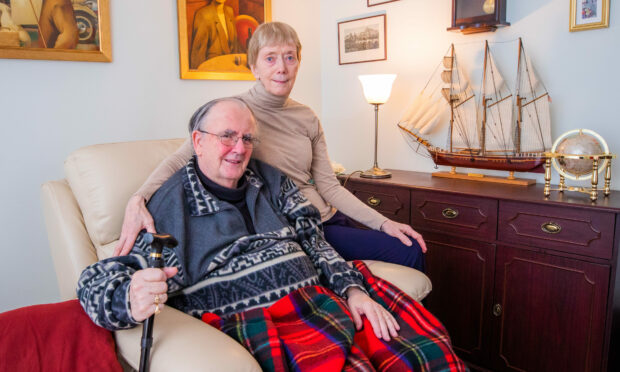
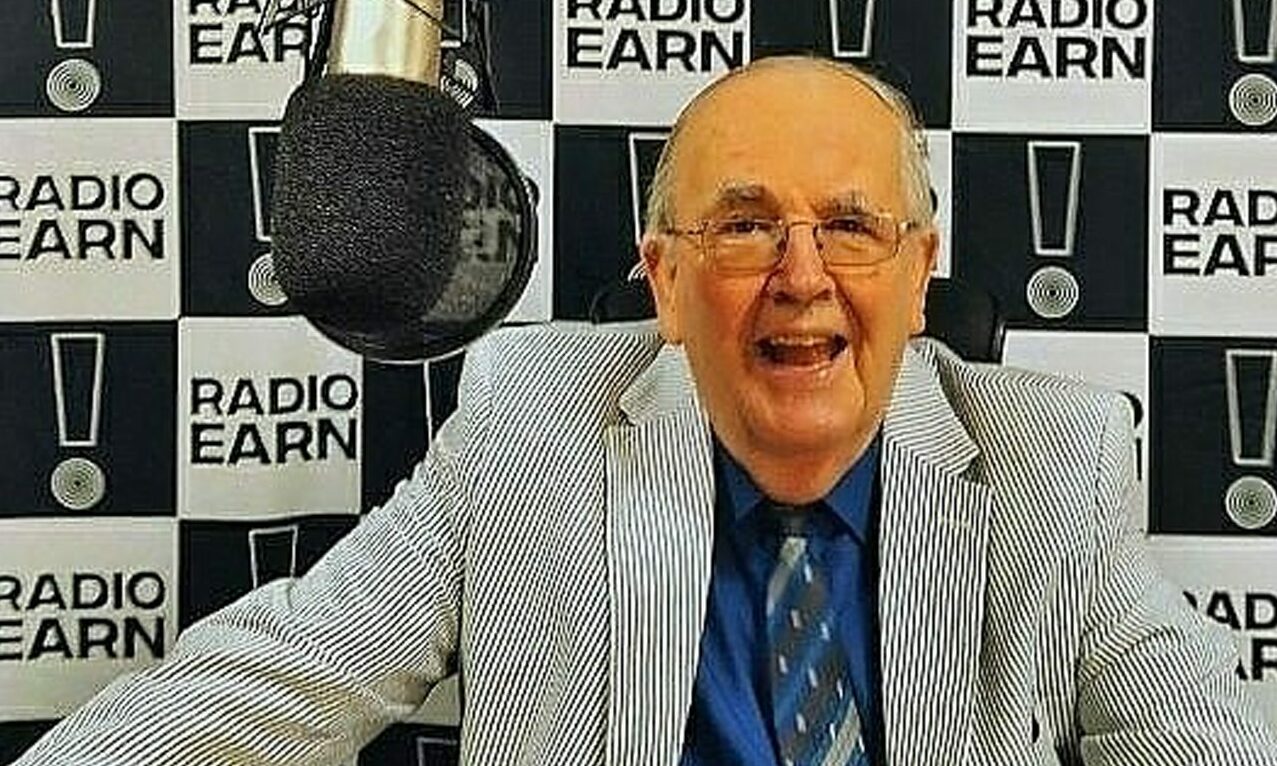

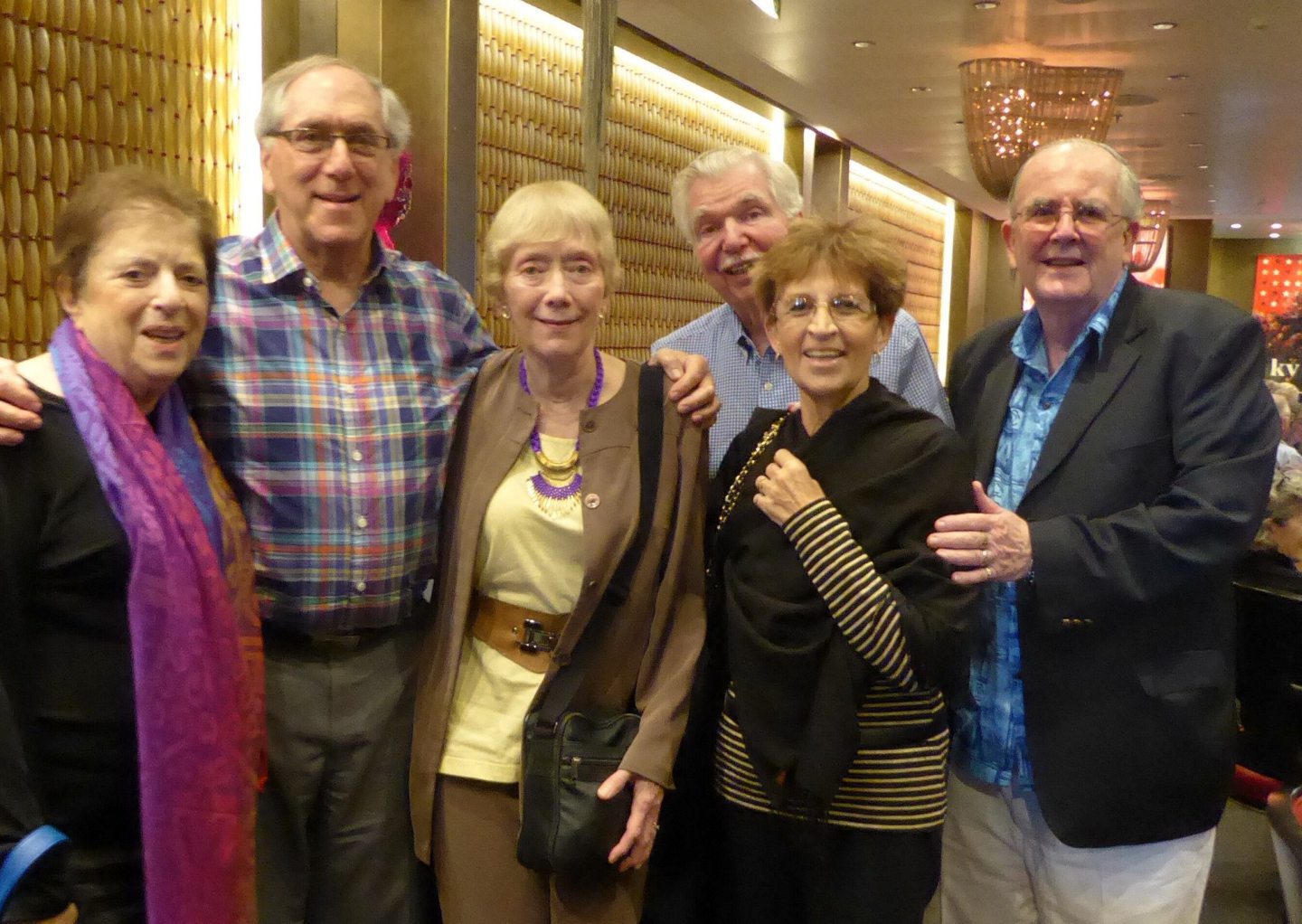

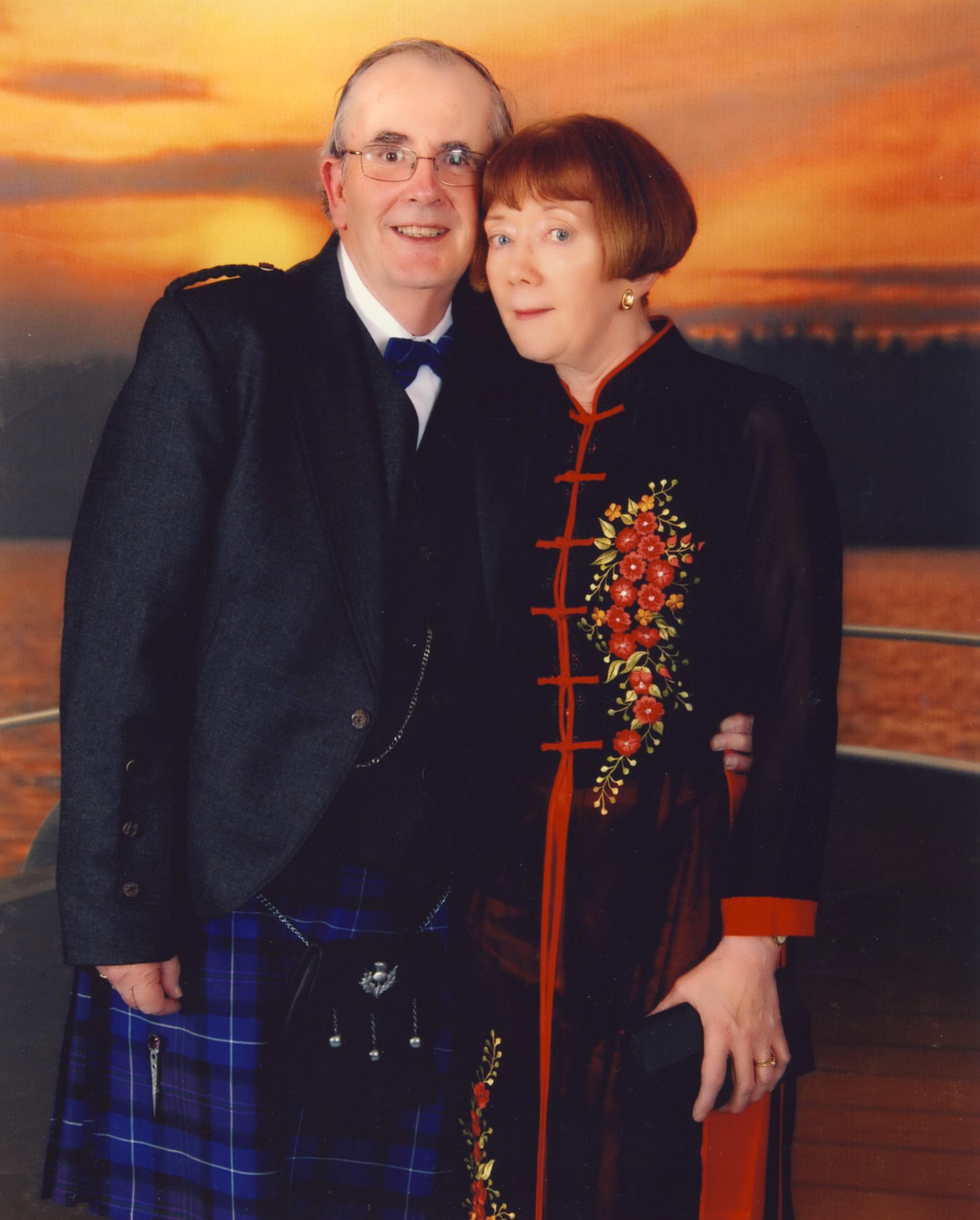
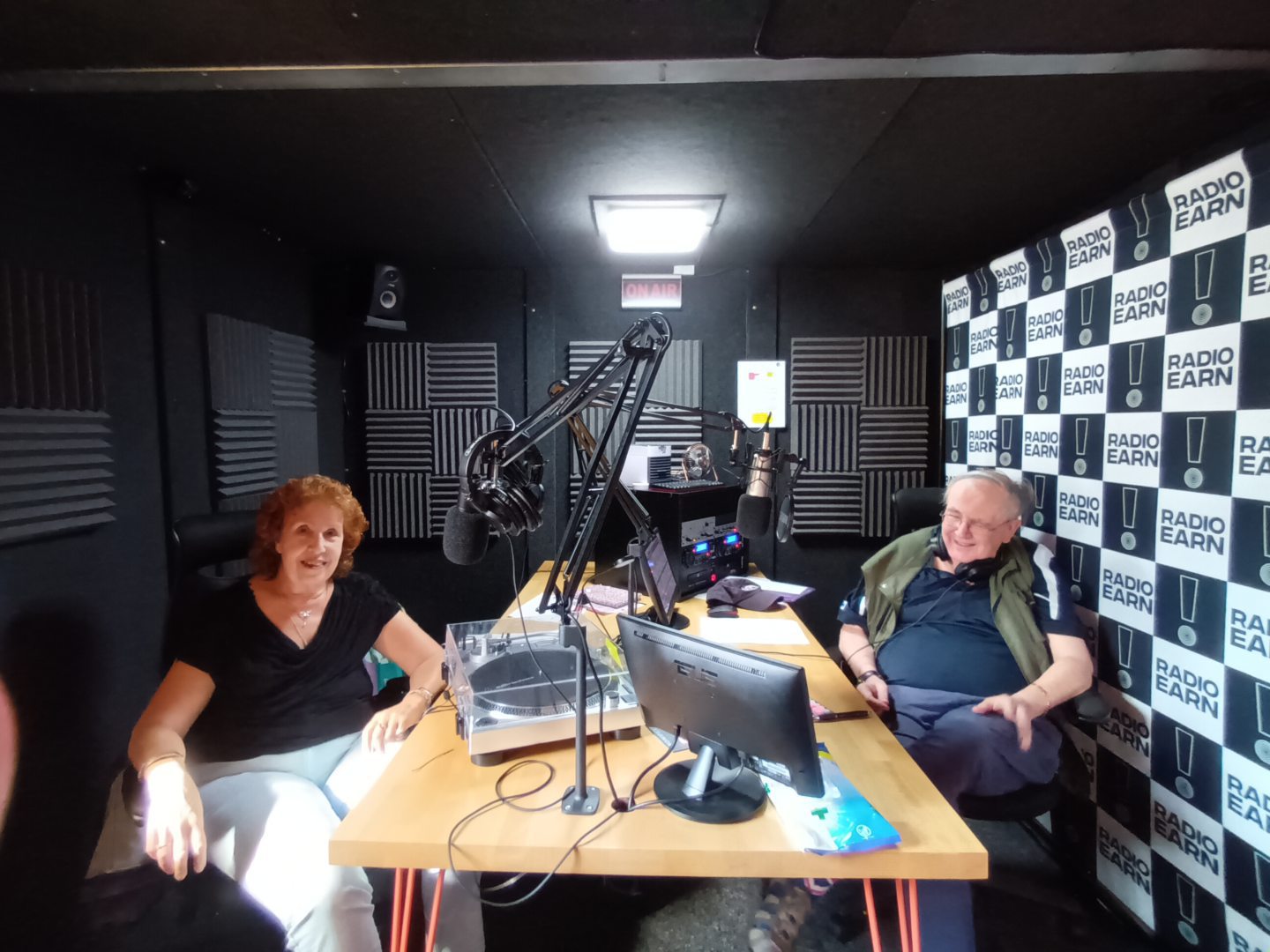








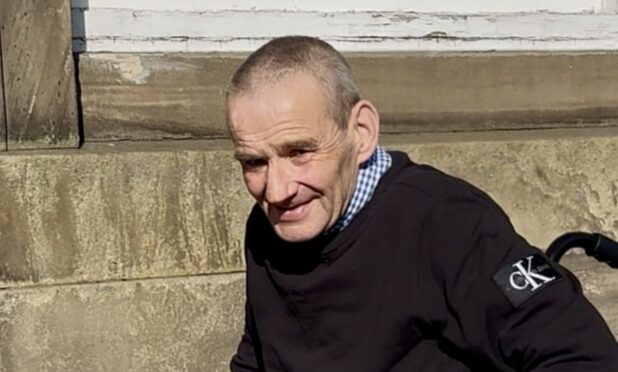

Conversation